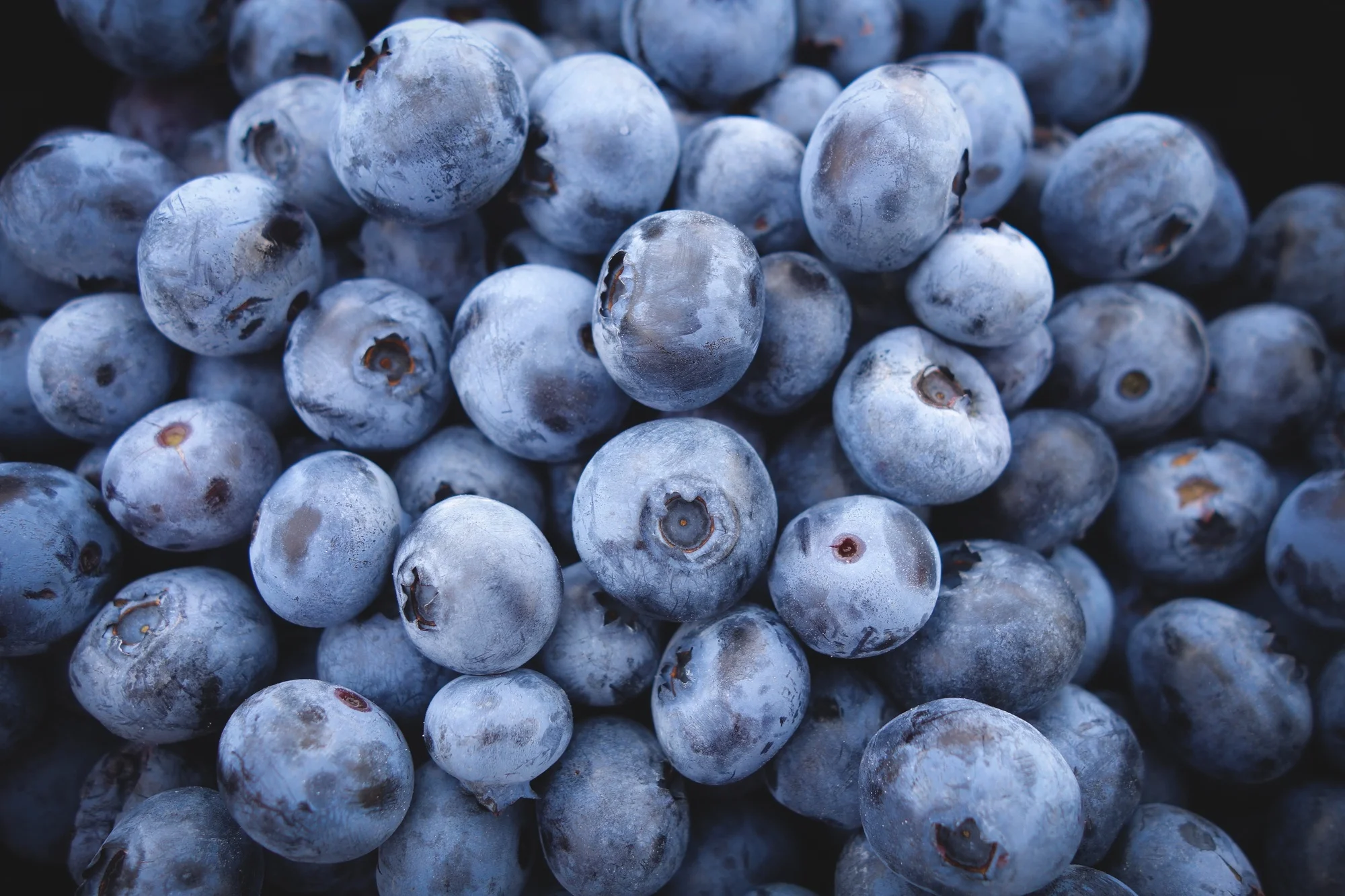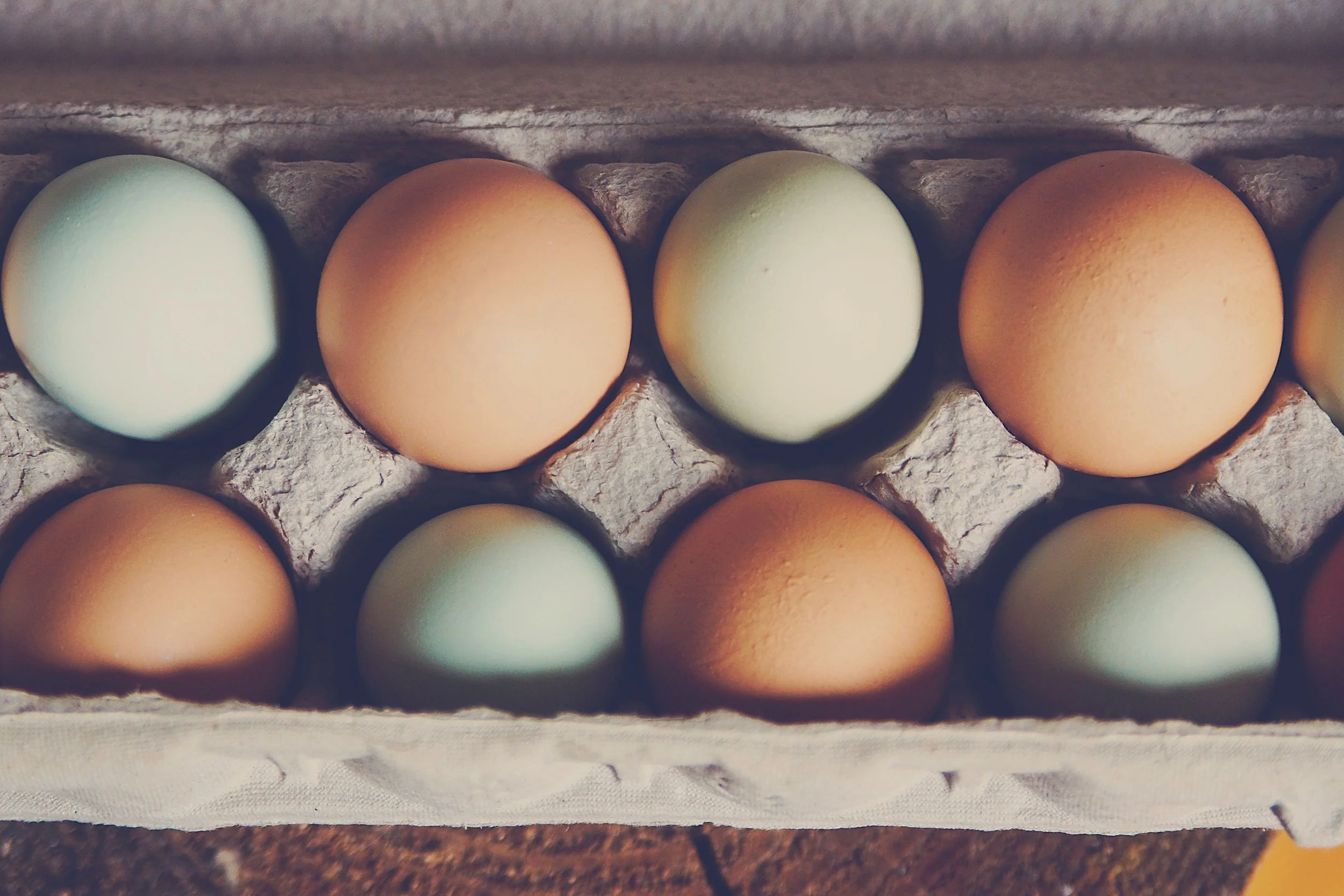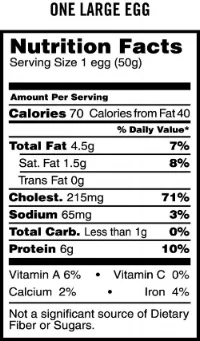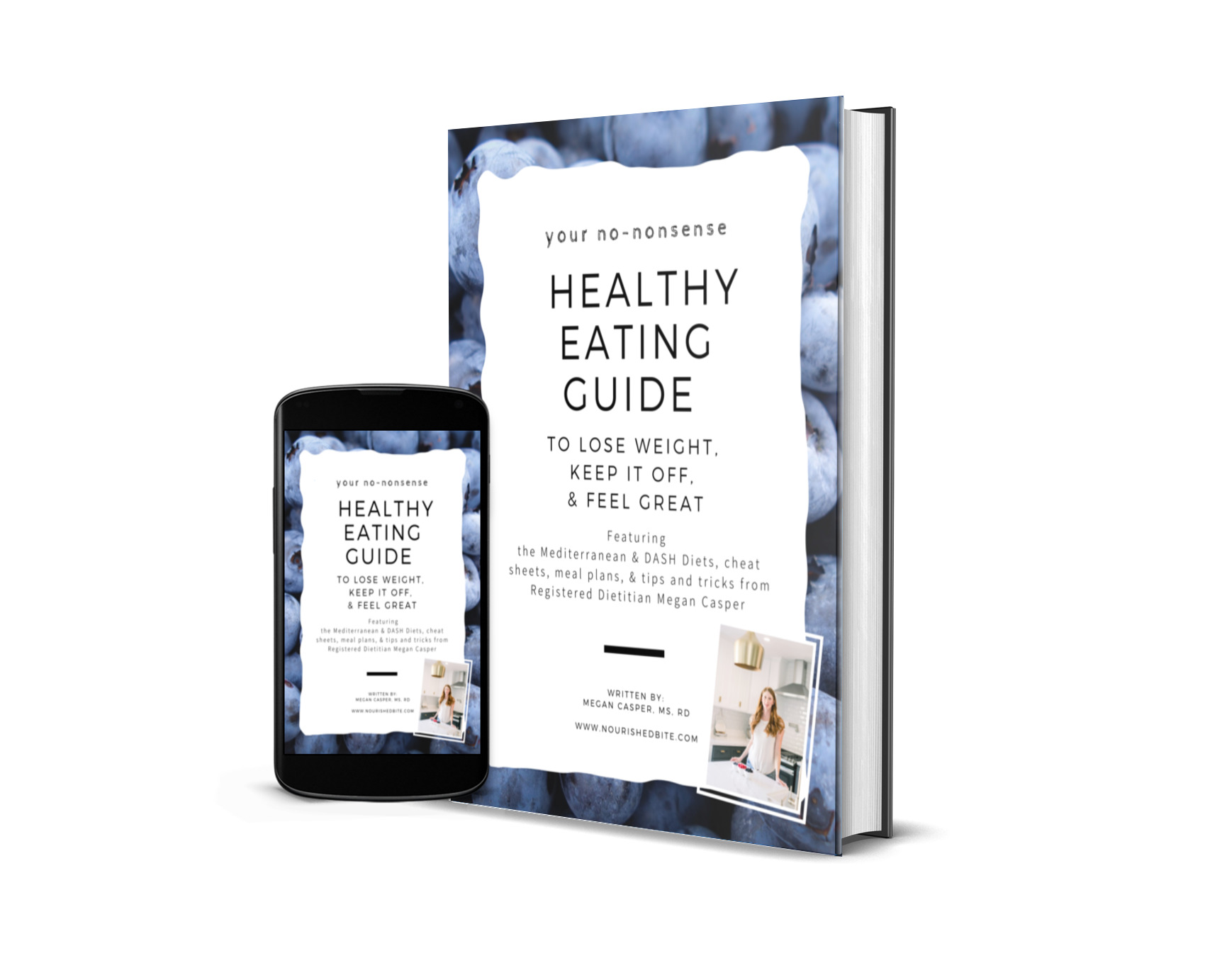Eggs: Healthy Superfood or Dangerous Heart Clogger?
/Every few years a new study comes out touting the health benefits, or health risks, of eggs. So what’s the deal? Are eggs a “superfood” or bad for your health?
First, a disclaimer. While I’m not backed by any special egg council, as all of my friends know, I love eggs. (One friend once made a joke instagram account called Megseggseggseggs because I sent him, apparently, WAY too many photos of my omelettes.) I eat them every morning, because they fill me up like no other breakfast. (More on that later.)
Check out my recipes for herb and & cheese baked egg muffins and red pepper, kale and cheese frittatas.
Egg Nutrition:
One large egg has about 70 calories and 6 grams of protein, making them a great source of high quality protein for both vegetarians and non-vegetarians. While they do have saturated fat and cholesterol, they also contain monounsaturated fats and, depending on the feed used (check the box), some eggs have high amounts of heart healthy omega-3 fatty acids. Eggs also contain small amounts of vitamins A, D, various B vitamins and minerals.
Don’t chuck the egg yolks just yet. While it’s true that nearly all of the fat and cholesterol is in the yolk, this is also where a lot of the amazing nutrients are. Think about it - that yolk was meant to sustain a growing chicken. Here you’ll find fat-soluble vitamins like vitamin A as well as brain boosting choline and lecithin. Egg yolks also are home to two antioxidants that protect eyes from UV damage, lutein and zeaxanthin.
Health Benefits of Eggs:
Eggs help you stay full and can even help you lose weight. From personal experience, I can tell you that nothing fills me up like having eggs for breakfast - and research backs this up. One study found that participants who ate an egg omelet stayed fuller longer than those who ate a chicken sandwich with a potato. In another study, participants ate the same amount of calories of either eggs or bagels. Those who ate eggs lost significantly more weight and reduced their waist circumference.
If you’re always starving before lunch, you should try this experiment at home! And since eggs aren’t exactly the quickest thing to whip up as you’re running out the door, try meal prepping these herb and & cheese baked egg muffins on Sunday and popping them in the microwave each day.
Whole eggs help keep muscles strong. One study found that when participants had the same amount of protein from either eggs or egg whites plus another fat source, participants had vastly improved muscle recovery after exercise. They concluded that having an egg in its whole form instead of isolating different parts did a body good. As we hear more and more often that whole foods have more than just the nutrients we know about, it makes you wonder what other hidden ‘nutrients’ and combinations of nutrients may be in foods and what they can do for us.
Eggs can boost a growing baby’s brain power. And your own too!
It’s no secret that choline can help boost the brain. Choline helps during the process of methylation, which is needed to create DNA, for nerves to signal, and to create chemical messengers, neurotransmitters.
While choline can be found in other foods like red meat, cod, salmon, liver and some veggies, eggs are especially high in this micronutrient. As diets have focused on staying away from fat, we have also begun to avoid this important nutrient, and it’s estimated that only 10% of Americans are getting enough. In fact, older children, men, women, and pregnant women have all been found to be far below the adequate daily intake which may increase the risk of diseases like liver disease, atherosclerosis, and, neurological disorders.
Back to babies. While we know that choline is critical to fetal development, a recent study had pregnant women eat either enough choline to be slightly above the adequate intake or double that. They checked in with the babes as they grew and found that those whose mothers’ had had double the recommended choline value had faster infant information processing speed and visuospatial memory - tests which are correlated to childhood IQ. So if you’re expecting, you may want to increase your daily choline intake if you’d like a smartypants.
An egg a day may keep the opthamologist at bay.
Eggs are high in antioxidants lutein and zeaxanthin, which help protect eyes from UV light, scavenge destructive free radicals and can help prevent cataracts and the risk of macular degeneration - a disease that can lead to blindness. While these two antioxidants are often found in green leafy veggies (and you should totally also get them from there, too!), these nutrients are more easily absorbed from an egg yolk. In fact, one study found that eating one egg a day for 5 weeks greatly increased the amount of lutein and zeaxanthin in the eye, all without raising cholesterol, meaning older adults at risk for both macular degeneration and cardiovascular disease may benefit from an egg a day.
Eggs are good for the environment, too. Compared to other animal protein sources, eggs have a much smaller carbon footprint. If this is important to you, reach for free range eggs and check out what feed they’ve been chowing down on. While their carbon footprint is relatively low, chickens also are typically given a lot of cereals and soy which cause high emissions. A truly free range bird is your best bet, or cut out the transportation and go to your local farm stand.
Eggs may be good for cardiovascular disease. Here’s a nutrition “huh” moment. While we’re always hearing that eggs are bad for our hearts, a recent, large study actually found that eating about an egg a day could lower the risk of cardiovascular disease and stroke.
Risks of Eating Eggs:
If you read your nutrition labels, you’ll notice one egg a day takes up a shockingly large percentage of your daily cholesterol intake. Until recently, it was recommended that only about 300 milligrams of cholesterol should be eaten a day, which is roughly the amount in about two eggs. This scared many people away from foods with cholesterol like egg yolks and shellfish.
In 2015, an increasing amount of research showed that cholesterol from the diet had little to do with high cholesterol levels in the blood stream and that dietary fat impacts cholesterol levels more. In fact it’s estimated that only about 20 percent of your blood cholesterol levels are from your diet, while the rest are made by your liver (because your body does need cholesterol, for things like cell membranes, digestion, and synapses in your brain.)
It’s important to note though that if you have high cholesterol or a family history of high cholesterol, that 20 percent extra dietary cholesterol may not be so great for you. If this is a concern for you, you may want to talk to your doctor before increasing the amount of cholesterol you eat per day. Further research states that an egg a day should be okay for people with a history of heart disease, so the choice is up to you and your docto.r.
So why did eggs get such bad press? Further research has found that people who tend to eat more eggs in their diets also tend to have diets high in other saturated fats. When eggs are eaten with a more balanced diet filled with healthier fats like monounsaturated and polyunsaturated fats (aka: swap out the butter for avocado and olive oil), there was little effect on blood cholesterol when people ate eggs.
So, are eggs good are bad for me?
While eggs are in now, I’m sure there will be other studies that come along and contradict that at some point. The key here is to remember that eggs can be a healthy part of a healthy diet. If the overall diet is poor, like was found in many studies that happened to also be about eggs, of course there aren’t going to be good outcomes. If the diet is filled with whole grains, fresh fruits and veggies and also happen to have eggs, there probably will be great outcomes.
The incredible, edible egg is packed with protein and many nutrients beyond just vitamins and minerals. Eggs can fill you up and keep your brain, muscles, and eyes all strong. Just like all foods, you can go overboard and over do it but eggs deserve a break (har har) and a healthy seal of approval.
What do you think? Are you for or against eggs? Think the research is bonkers? What's your favorite recipe? Leave a comment below!




